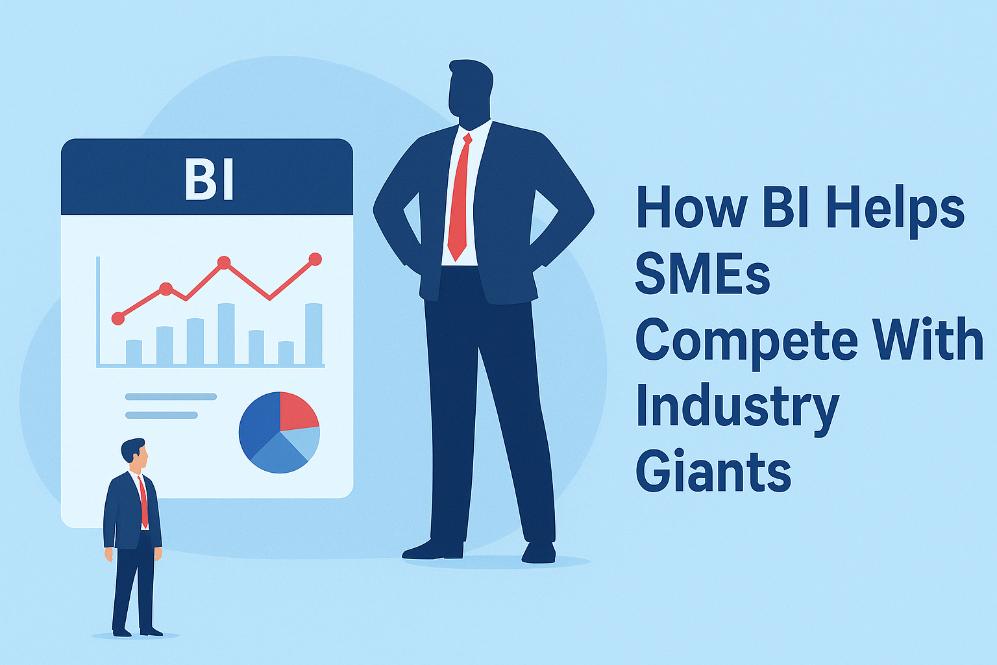Introduction
Small and medium-sized enterprises (SMEs) often struggle to compete with large corporations that have bigger budgets and resources. However, technology has leveled the playing field. Business Intelligence (BI) tools empower SMEs to harness the power of data, make smarter decisions, and compete effectively with industry giants.
1. Affordable Access to Insights
Modern BI solutions are scalable and affordable, making advanced analytics accessible even to small businesses. SMEs can now enjoy the same data-driven advantages once reserved for big corporations.
2. Enhancing Customer Understanding
BI helps SMEs analyze customer behavior, preferences, and buying patterns. With these insights, they can create personalized marketing strategies, build loyalty, and compete with larger brands on customer experience.
3. Optimizing Resources
Unlike large companies, SMEs must use limited resources wisely. BI tools highlight inefficiencies, optimize supply chains, and reduce waste, allowing smaller firms to maximize every investment.
4. Enabling Faster Decisions
Industry giants often face bureaucratic delays in decision-making. SMEs, empowered with BI, can act faster by relying on real-time insights. This agility becomes a major competitive advantage.
5. Identifying Growth Opportunities
BI uncovers market trends and new opportunities that may not be visible at first glance. SMEs can use this knowledge to expand strategically and capture untapped market segments.
Conclusion
Business Intelligence enables SMEs to compete beyond their size and resources. By leveraging real-time data, optimizing operations, and personalizing customer experiences, SMEs can stand toe-to-toe with industry giants. In today’s competitive market, BI is not just a tool, it’s a survival strategy for growing businesses.



